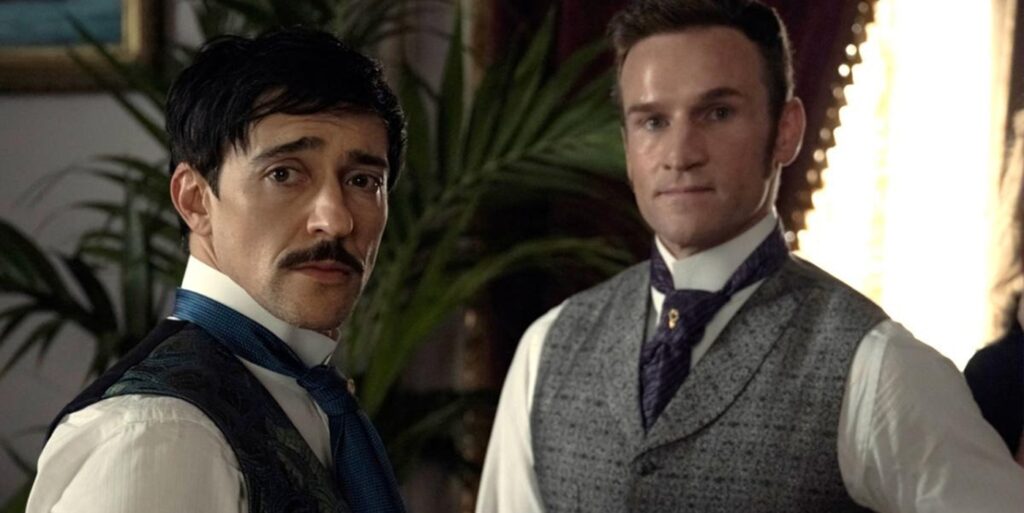
Today, I explain why creators should at least address the negative tropes surrounding their plot points when “defending” them.
SPOILERS FOR THE LATEST EPISODE OF THE GILDED AGE!
This is the Cronin Theory of Pop Culture, a collection of positions I’ve collected over the years that I think hold pretty true.
In the most recent episode of The Gilded Age, the show about rich New Yorkers (and their servants) in 1880s New York City, the only gay couple on the series, John Adams and Oscar van Rhijn, had a touching moment in the street (but not TOO touching because, well, again, this is 1884, and they can’t be openly affectionate with each other) celebrating a moment of personal growth for Oscar. John then crosses the street…and is killed by a rogue carriage.
As you may or may not know, there is a famous TV trope called “Bury Your Gays,” which is about how gay characters die at a disproportionately higher frequency than straight characters on TV shows. Much of that, of course, is due to gay characters being sidelined in general, and so if you’re going to kill someone off, it’s usually a side character.
Gilded Age showrunners Julian Fellowes and Sonja Warfield recently defended the plot twist to TVLine, saying most of the typical stuff (you know, basically they want to see how this will cause Oscar to react. Warfield specifically noted, “Those shocking things are true in life. I’ve certainly experienced those traumas. They change you, and we wanted to bring about that change in Oscar.”).
And that’s fair enough, I don’t have a problem with creators defending their plot decisions. Where I have a bit of a problem is that they never even ADDRESS the “Bury Your Gays” critique. I don’t think that’s a good idea. It makes you look out of touch when you don’t even CONSIDER how your plot decisions might be received vis a vis notable tropes like “Bury Your Gays.”
It’s similar to people who don’t acknowledge that a decision might be a “fridging.” Feel free to defend the decision. I’m not asking creators to prostrate themselves, begging for forgiveness if they make a decision that fans might feel is problematic, but at least ADDRESS the concern. When you discuss a plot point that you know will be controversial and don’t even ADDRESS the trope stuff, you just come off as out of touch.
It reminds me of Jim Shooter defending himself on the whole “First gay character in the Marvel Universe are two dudes trying to rape Bruce Banner in the YMCA,” and he wouldn’t even ACKNOWLEDGE the main point about representation (that, when you have no gay characters, the fact that the FIRST gay character you have is a rapist means that 100% of your gay characters are depicted negatively), and just argued other points. It made Shooter seem willfully out of touch, and the same thing goes today when creators won’t address the real controversy over a plot point.
Again, you don’t have to apologize for your plot decision if you stand by it. Heck, you don’t even have to defend it if you don’t feel like defending it. But if you choose to defend it, just address the points in your defense. Don’t skip over the criticism.









